第43章 CHAPTER 4(3)
Women in general would be brought up equally capable of understanding business,public affairs, and the higher matters of speculation, with men In the sameclass of society; and the select few of the one as well as of the other sex,who were qualified not only to comprehend what is done or thought by others,but to think or do something considerable themselves, would meet with thesame facilities for improving and training their capacities in the one sexas in the other. In this way, the widening of the sphere of action for womenwould operate for good, by raising their education to the level of that ofmen, and making the one participate in all improvements made in the other.
But independently of this, the mere breaking down of the barrier would ofitself have an educational virtue of the highest worth. The mere gettingrid of the idea that all the wider subjects of thought and action, all thethings which are of general and not solely of private interest, are men'sbusiness, from which women are to be warned off -- positively interdictedfrom most of it, coldly tolerated in the little which is allowed them --the mere consciousness a woman would then have of being a human being likeany other, entitled to choose her pursuits, urged or invited by the sameinducements as anyone else to interest herself in whatever is interestingto human beings, entitled to exert the share of influence on all human concernswhich belongs to an individual opinion, whether she attempted actual participationin them or not -- this alone would effect an immense expansion of the facultiesof women, as well as enlargement of the range of their moral sentiments.
Besides the addition to the amount of individual talent available forthe conduct of human affairs, which certainly are not at present so abundantlyprovided in that respect that they can afford to dispense with one-half ofwhat nature proffers; the opinion of women would then possess a more beneficial,rather than a greater, influence upon the general mass of human belief andsentiment. I say a more beneficial, rather than a greater influence; forthe influence of women over the general tone of opinion has always, or atleast from the earliest known period, been very considerable. The influenceof mothers on the early character of their sons, and the desire of youngmen to recommend themselves to young women, have in all recorded times beenimportant agencies in the formation of character, and have determined someof the chief steps in the progress of civilisation. Even in the Homeric age,{alpha iota delta omega sigma} towards the {TAU rho omega alpha delta alphasigma} {epsilon lambda chi epsilon sigma iota pi epsilon pi lambda omegaupsilson sigma} is an acknowledged and powerful motive of action in the greatHector. The moral influence of women has had two modes of operation. First,it has been a softening influence. Those who were most liable to be the victimsof violence, have naturally tended as much as they could towards limitingits sphere and mitigating its excesses. Those who were not taught to fight,have naturally inclined in favour of any other mode of settling differencesrather than that of fighting. In general, those who have been the greatestsufferers by the indulgence of selfish passion, have been the most earnestsupporters of any moral law which offered a means of bridling passion. Womenwere powerfully instrumental in inducing the northern conquerors to adoptthe creed of Christianity, a creed so much more favourable to women thanany that preceded it. The conversion of the Anglo-Saxons and of the Franksmay be said to have been begun by the wives of Ethelbert and Clovis. Theother mode in which the effect of women's opinion has been conspicuous, isby giving, a powerful stimulus to those qualities in men, which, not beingthemselves trained in, it was necessary for them that they should find intheir protectors. Courage, and the military virtues generally, have at alltimes been greatly indebted to the desire which men felt of being admiredby women: and the stimulus reaches far beyond this one class of eminent qualities,since, by a very natural effect of their position, the best passport to theadmiration and favour of women has always been to be thought highly of bymen. From the combination of the two kinds of moral influence thus exercisedby women, arose the spirit of chivalry: the peculiarity of which is, to aimat combining the highest standard of the warlike qualities with the cultivationof a totally different class of virtues -- those of gentleness, generosity,and self-abnegation, towards the non-military and defenseless classes generally,and a special submission and worship directed towards women; who were distinguishedfrom the other defenceless classes by the high rewards which they had itin their power voluntarily to bestow on those who endeavoured to earn theirfavour, instead of extorting their subjection. Though the practice of chivalryfell even more sadly short of its theoretic standard than practice generallyfalls below theory, it remains one of the most precious monuments of themoral history of our race; as a remarkable instance of a concerted and organisedattempt by a most disorganised and distracted society, to raise up and carryinto practice a moral ideal greatly in advance of its social condition andinstitutions; so much so as to have been completely frustrated in the mainobject, yet never entirely inefficacious, and which has left a most sensible,and for the most part a highly valuable impress on the ideas and feelingsof all subsequent times.